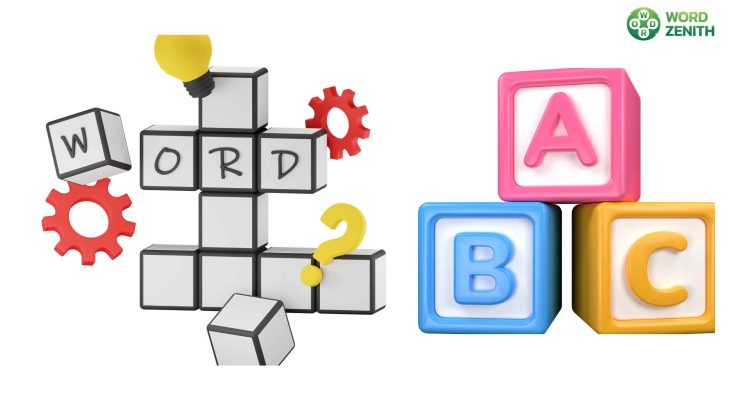People have always known that word games are a good way to pass the time. However, they can also be used as educational tools for improving decision making abilities and strategic planning skills. Classic board games like Scrabble or digital apps such as Words with Friends provide opportunities to develop cognitive capacities. This piece of writing will look closely at how word games affect decision-making processes and the ability to plan strategies.
Understanding Decision-Making
Process of Decision Making
Decision making is a process which involves different stages whereby one has to identify a problem, gather necessary information, evaluate alternatives, select the best and assess the results. Word games create an environment with many repetitive steps in making choices, therefore people learn how to appraise situations and make sound judgments.
Strategic Decision-Making
Strategic thinking requires someone thinking ahead considering what might happen next week or month from now on top of realizing immediate effects in hours’ time. During these games players must use their brains wisely because they need to do maximum scoring using minimum resources like letter tiles while at the same predicting other people’s moves. This particular kind of reasoning applies even outside playing areas when individuals have various things weigh before settling for one option.
How Word Games Improve Decision Making Skills
Better Problem Solving Abilities
Word puzzles often present learners with lexical problems that demand creative approaches towards solving them. In this sense, participants should detect how letters combine into words through finding patterns then trying different formations depending on changed dynamics in games. The brain gets trained over again during such mental exercises thereby enhancing adaptive thinking necessary for tackling real life challenges more flexibly and imaginatively.
Increased Cognitive Flexibility
To make decisions effectively people must possess cognitive flexibility which allows them to shift between tasks or mental processes easily. When playing word puzzle games individuals are required to change their minds swiftly whenever there is a need to move from spatial awareness into opponent analysis during word formation among other things involved. It means therefore that continuous exposure to word puzzles nurtures this kind of thinking hence making decision makers adjust strategies according to different contexts and demands.
Critical Thinking Ability
Analytical thinking entails breaking down complex issues into simpler parts before evaluating each part separately. Word puzzles make players breakdown letter distribution, establish word viability and anticipate possible consequences resulting from their own moves. These games foster an analytical mindset that empowers critical thinkers with skills necessary for dismantling intricate decisions across various fields.
Strategic Planning Skills in Relation to Word Games
Long Range Outlook
In order to create successful strategic plans people must have clear objectives, workable strategies as well as foresee likely challenges in future times. That is why during word puzzle contests competitors are encouraged to think far ahead by placing tiles strategically for later turns saving valuable resources capitalizing on high score opportunities among others. This way of thinking about what will happen next nurtured by such amusements can be applied when coming up with business plans or academic blueprints among others.
Risk Management
Before settling on a particular course of action it is important to undertake risk assessments while considering perceived benefits. People play safe sometimes when engaging opponents during word games since they can predict their possible reactions but at other instances go risky aiming higher points which may disrupt rival’s tactics. Such deliberations teach individuals how to handle uncertainties confidently and bounce back stronger than before if things do not turn out as expected.
Flexibility
Rather than being rigid, strategic planning should be considered as a dynamic process which needs flexibility in the face of changing situations. Word games can encourage this skill by their unpredictable nature and constantly changing board states, which also enable players to adapt their strategies quickly. People are taught how to change their plans at short notice, take advantage of new opportunities and deal with unexpected difficulties, all of which are useful abilities for strategic planning in any setting.
Word Games’ Effects on Decision-Making Processes
Brain Power and Mental Stimulation
Regularly participating in word games triggers brain activity and increases neuroplasticity, which is the capacity of the brain to reorganize itself by creating new neural pathways. This stimulation heightens mental functions like memory retention, attention span, and executive control — all key components for making good decisions. Eventually, continuous playing of word games may lead to permanent enhancements in decisional skills as well as overall cognitive performance.
Emotional Management
Word games provide an environment where individuals can experience success and failure in a controlled manner thus fostering emotional regulation and resilience among them. When players are at their best or worst moments such as scoring high points or encountering difficult letter combinations respectively; they learn how to cope with disappointment, keep concentration steady while dealing with frustration, and work through challenges even when things seem hopeless among others. Such emotional strength gained from these experiences prepares one for real life decision making situations where he/she has to stay calm under pressure.
Socializing With Others/ Teamwork
Most word puzzles require some form of socializing whether it’s face-to-face interaction during gameplay sessions or engaging via online multiplayer options available today. Participating in team based activities around words not only helps us bond socially but also develops better communication skills needed when working together towards common goals like solving puzzles collaboratively with friends or family members etc. Another thing worth noting is that different opponents have various approaches towards solving problems hence exposing us to a wider range of strategies used during decision making processes thereby expanding our thinking capacity.
Read More: Word Games and the Development of Emotional Intelligence
Conclusion
Games involving the use of words can be powerful tools for honing decision making abilities and strategic planning skills. Through fun-filled challenges that require critical thinking faculties coupled with engagement of mindsets which appreciate uncertainty more than anything else; these types of entertainment platforms help individuals become better problem solvers while strengthening their ability to think strategically about future outcomes. Too much emphasis placed on just one answer being correct may hinder this process from happening. Whether played casually for fun or approached competitively with desire win at all costs mentality; there are many cognitive benefits which can be derived from them if only we take time understand what needs be done so as get most out them




